Recovery is more than putting down a drink or walking away from a harmful habit. It’s about creating a new way of living. Healing, growth, and self-reflection are all essential parts of this process. They help you understand where you’ve been, make peace with your past, and lay the groundwork for a healthier future. In sobriety, you’re not just breaking free from substances, you’re learning how to reconnect with yourself and your purpose.
One powerful tool for this journey is journaling for addiction recovery. Writing allows you to slow down, process your emotions, and track your progress in a tangible way. In this blog, we’ll explore practical journaling exercises and self-reflection prompts designed to support your healing. Whether you’re early in recovery or years into sobriety, these practices can help you uncover insights, celebrate victories, and navigate challenges with a clearer mind and a stronger heart.
Why Journaling for Addiction Recovery Makes a Difference
Journaling for addiction recovery isn’t just about putting words on paper. It’s about creating a safe space to explore your thoughts and feelings without judgment. When you write, you can uncover emotions you might not be ready to say out loud or even fully understand yet. This process helps build self-awareness, which is key to recognizing triggers, unhealthy patterns, and moments of strength. Over time, journaling becomes a mirror reflecting your growth and the shifts happening inside you.
Beyond emotional clarity, journaling helps you track your progress in real, measurable ways. Seeing your journey mapped out on the page—your struggles, your breakthroughs, your daily wins—can be incredibly motivating. It’s a quiet form of therapy that slows the world down, allowing you to focus on healing and growth, one day at a time. By making journaling for addiction recovery part of your routine, you give yourself a powerful tool to stay connected to your goals and your true self.
Practical Journaling Exercises for Addiction Recovery
Using journaling for addiction recovery can feel overwhelming at first, so having a variety of prompts and exercises ready can help you get started and stay consistent. These prompts encourage self-reflection, honesty, and growth, perfect for anyone looking to deepen their healing through writing.
- What does sobriety mean to me personally?
- Describe a moment when you felt truly proud of your recovery.
- What are three things I’m grateful for today?
- How do I feel right now, emotionally and physically?
- Write a letter to your addiction, explaining how it has affected your life.
- What are my biggest triggers, and how do I usually respond to them?
- Describe a healthy coping strategy that has helped me in tough times.
- What does self-care look like for me today?
- Write about someone who supports my recovery and why they matter.
- What fears do I have about staying sober?
- How do I celebrate small victories?
- What are three goals I want to set for next week?
- Write about a time when I overcame a craving or temptation.
- How has my relationship with myself changed since starting recovery?
- What negative self-talk do I need to challenge today?
- Describe a place where I feel safe and calm.
- What does forgiveness mean to me, and who do I need to forgive?
- How do I handle stress, and what could I do differently?
- Write about a positive change I’ve noticed in my mindset.
- What are my personal values, and how do they guide my choices?
- Describe an activity or hobby that brings me joy and why.
- What lessons have I learned from past mistakes?
- Write a letter to my future sober self.
- What does happiness feel like to me?
- How do I want to grow emotionally this month?
- Describe a challenge I’m currently facing and possible ways to approach it.
- What boundaries do I need to set to protect my recovery?
- Write about a support group or community that has helped me.
- How do I practice mindfulness or being present?
- What are three things I love about myself?
- Describe a time when I felt overwhelmed and how I got through it.
- What triggers feelings of guilt or shame, and how can I release them?
- Write about a book, podcast, or resource that inspires my recovery journey.
- What does balance mean in my life right now?
- How do I handle setbacks, and what can I learn from them?
- Describe a moment when I felt peace in sobriety.
- What new habits am I proud to have built?
- Write about how my support system has changed over time.
- What are my fears for the future, and how can I face them?
- Describe how journaling for addiction recovery has helped me so far.
- What kind of self-talk do I want to start practicing?
- Write about a person I’d like to thank for their support.
- How do I deal with loneliness or isolation?
- What’s something I’m looking forward to in sobriety?
- Describe a healthy routine that supports my well-being.
- What strengths have I discovered in myself?
- Write about how I manage cravings and urges.
- What are my proudest moments since beginning recovery?
- How can I show myself kindness today?
- Describe how I want to handle stress differently in the future.
- Write a list of affirmations to repeat when feeling vulnerable.
Journaling for addiction recovery is your personal space. There’s no right or wrong way to do it. Just keep writing, keep reflecting, and keep moving forward.
Your Journey, Your Strength, Your Support
By making writing a regular habit, you give yourself a powerful way to stay connected with your emotions, track your progress, and find clarity when things get tough. Remember, recovery is personal and unique, and tools like journaling help you own your story and shape the future you deserve.
At Twin Branch Wellness & Recovery for Women, we understand that every woman’s path to sobriety is different. We offer compassionate, personalized support tailored to meet women where they are, whether just starting out or continuing their long-term recovery. Through counseling, group therapy, and holistic wellness programs, Twin Branch helps women heal body, mind, and spirit in a safe, supportive environment. If you or someone you love is ready to take the next step toward lasting recovery, Twin Branch is here to walk beside you every step of the way.











